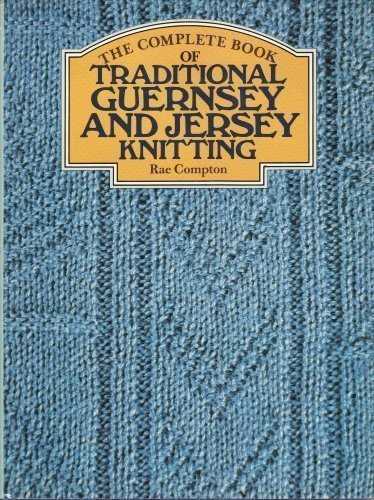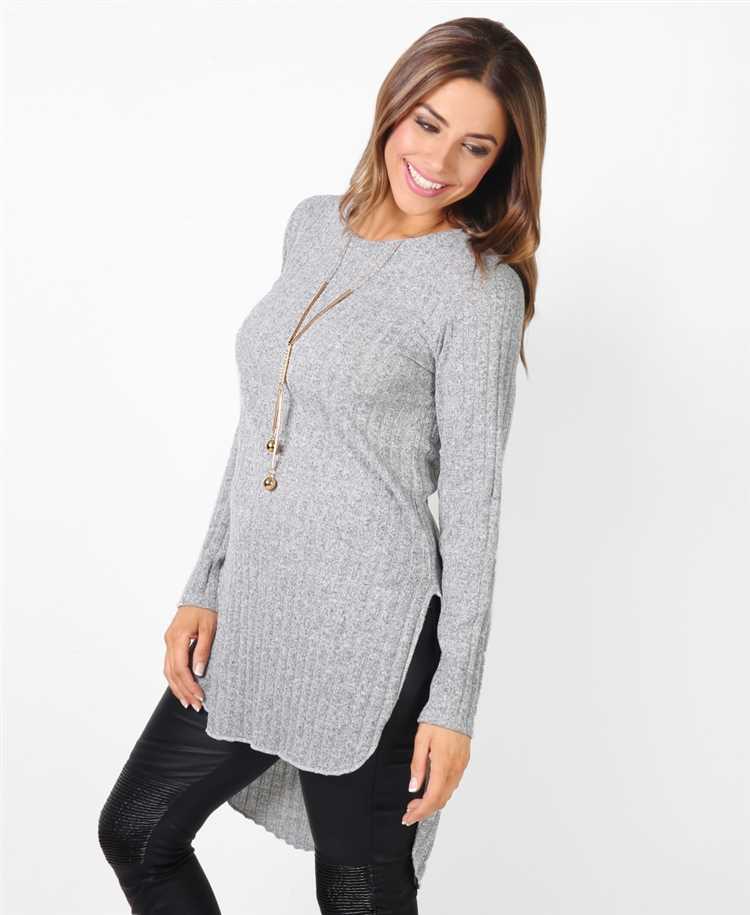Jersey knit is a type of fabric that is commonly used in the production of clothing. It is a lightweight and stretchy material that is known for its softness and comfort. Jersey knit is made from a single stockinette stitch, which gives it its characteristic smooth and uniform appearance.
This type of fabric is most often made from cotton or a blend of cotton and synthetic fibers. It is commonly used in the production of t-shirts, dresses, and other casual wear. Jersey knit is also frequently used in sportswear, as its lightweight and breathable nature make it ideal for athletic activities.
One of the key features of jersey knit is its ability to stretch and recover. This makes it a versatile fabric that can easily adapt to the shape of the wearer’s body. It is often used in clothing that requires a close fit, such as leggings or bodycon dresses.
Jersey knit is also known for its durability. It is a fabric that can withstand regular wear and washing without losing its shape or color. This makes it a popular choice for everyday clothing that needs to withstand the rigors of daily life.
Definition of Jersey Knit
Jersey knit, also known simply as jersey, is a type of knit fabric that is used widely in clothing manufacturing. It is known for its unique characteristics that make it a popular choice for a variety of garments.
Origin:
Jersey knit fabrics originated from the Channel Island of Jersey, located between England and France. It was first produced in the 19th century and gained popularity for its softness, breathability, and stretch.
Construction:
Jersey knit is made using a technique known as single-knit construction. This means that it is knitted using a single set of needles, resulting in a fabric with a flat, right-side appearance and a looped, wrong-side appearance.
Fabric Characteristics:
- Softness: Jersey knit is known for its soft and smooth texture. It feels comfortable against the skin and is often used for making T-shirts, dresses, and loungewear.
- Stretch: Jersey knit has natural stretch due to its knitted construction. It can stretch in both width and length, providing flexibility and ease of movement.
- Breathability: The looped structure of jersey knit creates small air pockets, allowing air to circulate through the fabric. This makes it breathable and helps in regulating body temperature.
- Drapability: Jersey knit has good drape, meaning it hangs well and conforms to the body’s curves. This makes it suitable for creating flowy garments, such as skirts and dresses.
- Versatility: Jersey knit is versatile in terms of its applications. It can be used for various types of garments, including casual wear, sportswear, and even formal wear.
Common Uses:
Due to its desirable characteristics, jersey knit is widely used in the fashion industry. Some common applications include:
- T-shirts and tops
- Dresses and skirts
- Leggings and activewear
- Undergarments and sleepwear
Care Instructions:
When caring for jersey knit garments, it is important to follow the care instructions on the garment’s label. In general, jersey knit can be machine washed, but it is recommended to use a gentle cycle and cold water to prevent stretching or distortion. It is also best to hang dry or lay flat to dry to maintain the fabric’s shape.
In conclusion, jersey knit is a versatile and popular fabric choice due to its softness, stretch, breathability, and drapability. Whether used in everyday casual wear or specialized athletic apparel, jersey knit offers comfort and style.
Fabric Composition
Jersey knit fabric is made using a specific knitting technique, which results in a fabric that has a smooth and flat surface on one side and a textured surface on the other. The fabric is typically made from 100% cotton, but it can also be made from a blend of cotton and synthetic fibers, such as polyester or rayon.
The composition of jersey knit fabric can vary depending on the desired qualities of the fabric. Cotton is a popular choice for jersey knit fabric because it is soft, breathable, and hypoallergenic. It is also a durable fabric that can withstand regular washing and wear. Synthetic fibers like polyester and rayon are often blended with cotton to add stretch and improve the fabric’s drape and wrinkle resistance.
The exact composition of jersey knit fabric can be found on the fabric label or product description. It is important to check the fabric composition before purchasing or using the fabric to ensure it meets your needs and preferences.
Overall, the fabric composition of jersey knit can vary, but it is commonly made from 100% cotton or a blend of cotton and synthetic fibers like polyester or rayon. This combination of fibers gives jersey knit fabric its unique properties of comfort, breathability, and stretch.
Characteristics of Jersey Knit
Jersey knit fabric has several distinctive characteristics that make it unique and popular among fashion designers and consumers. These characteristics include:
- Soft and Comfortable: Jersey knit fabric is known for its softness and comfort, making it a preferred choice for clothing items that come in contact with the skin.
- Elasticity: Jersey knit has a natural stretch due to its knit construction, allowing it to easily conform to the body’s shape without sacrificing comfort.
- Breathability: This fabric has good breathability, allowing air to pass through easily and keeping the wearer cool and comfortable, especially in warm weather.
- Drapability: Jersey knit fabric has excellent drape, which means it hangs and flows gracefully when used in garments. This feature makes it a great choice for creating flowing dresses and tops.
- Easy Care: Jersey knit is generally easy to care for and requires minimal ironing. It is machine washable and tends to resist wrinkling, making it a practical choice for everyday wear.
Overall, these characteristics make jersey knit fabric a versatile and popular choice for a wide range of clothing items, including T-shirts, dresses, tops, skirts, and activewear. Its combination of comfort, stretch, and breathability makes it ideal for both casual and athletic wear.
History of Jersey Knit
Jersey knit fabric derives its name from the island of Jersey, located in the English Channel. The fabric itself has a long history, dating back to the medieval period.
The knitting technique used to create jersey knit originated in the Channel Islands, including Jersey. The knitters from this region developed unique methods to produce a fabric that was soft, stretchy, and comfortable to wear.
In the 18th century, the textile industry in Jersey began to flourish, and the production of jersey knit fabric became more widespread. The fabric gained popularity due to its versatility and ability to easily adapt to different clothing styles.
Throughout the years, jersey knit fabric has evolved, with advancements in technology allowing for more efficient production methods. In the early 20th century, the introduction of circular knitting machines revolutionized the industry, making it easier and faster to produce jersey knit fabric.
Jersey knit fabric became particularly popular in the sportswear industry during the 20th century. Its stretchiness and breathability made it a favored choice for activewear and athletic jerseys. The fabric’s ability to wick away moisture and provide comfort during physical activities made it ideal for athletes.
Today, jersey knit fabric is widely used in various industries, including fashion, sportswear, and home textiles. It is known for its softness, drape, and versatility, making it a popular choice for clothing, bedding, and other textile products.
The history of jersey knit fabric is a testament to its enduring popularity and the innovation of the textile industry. From its humble beginnings in the Channel Islands to its widespread use around the world, jersey knit fabric continues to be a staple in the fashion and textile industries.
Uses of Jersey Knit
Jersey knit fabric is a versatile fabric that can be used in a variety of ways. Here are some of the common uses of jersey knit:
- Clothing: Jersey knit is commonly used to make clothing such as T-shirts, dresses, skirts, and activewear. Its stretchy and breathable nature makes it a popular choice for comfortable and casual garments.
- Baby Items: Jersey knit fabric is soft and gentle on the skin, making it ideal for baby items such as onesies, blankets, and bibs.
- Bedding: Jersey knit sheets and pillowcases are popular due to their softness and breathability. They are known for their cozy feel and ability to regulate body temperature.
- Home Decor: Jersey knit fabric can also be used for various home decor projects such as curtains, cushion covers, and throw blankets. Its stretchiness makes it easy to work with and drape over furniture.
- Sportswear: Jersey knit is commonly used in sportswear due to its moisture-wicking properties and ability to stretch and move with the body. It is often used for activewear, yoga pants, and sports jerseys.
These are just a few examples of the many uses of jersey knit fabric. Its versatility and comfort make it a popular choice for a wide range of applications.
Advantages of Jersey Knit
Jersey knit fabric has several advantages that make it a popular choice for clothing and other textile products. Here are some of the key advantages:
- Comfortable: Jersey knit fabric is known for its softness and stretchiness, making it incredibly comfortable to wear. It has a natural elasticity that allows it to contour to the body, providing a snug and comfortable fit.
- Breathable: Jersey knit fabric is highly breathable, allowing air to circulate freely through the fabric. This makes it a great choice for warmer climates or for active individuals who want to stay cool and comfortable.
- Easy to care for: Jersey knit fabric is generally low maintenance and easy to care for. It is often machine washable and does not require ironing, saving time and effort in the laundry routine.
- Durable: Jersey knit fabric is known for its durability and ability to withstand regular wear and tear. It is less prone to pilling and stretching compared to other knitted fabrics, ensuring that the garments made from it will remain in good condition for an extended period of time.
- Versatile: Jersey knit fabric is highly versatile and can be used to create a wide range of garments and textile products. It is commonly used for t-shirts, dresses, skirts, and activewear, but can also be found in bedding, upholstery, and other household items.
With its combination of comfort, breathability, durability, and versatility, jersey knit fabric offers a host of advantages that make it a popular choice in the world of textiles and fashion.
Care and Maintenance of Jersey Knit
Jersey knit fabric is known for its softness, stretchability, and durability. To ensure that your jersey knit garments stay in good condition for a long time, follow these care and maintenance tips:
Washing
- Always read the care label on your jersey knit garment before washing.
- Machine wash in cold water to prevent shrinking and color fading.
- Use a gentle cycle and mild detergent specifically designed for delicate fabrics.
- Avoid using bleach or harsh chemicals, as they can weaken the fibers and damage the fabric.
- If hand washing, gently agitate the garment in a basin of cold water with mild detergent.
- Rinse thoroughly to remove all detergent residue.
Drying
- Avoid tumble drying your jersey knit garments, as it can cause them to shrink and lose their shape.
- Instead, lay the garment flat on a clean towel and reshape it to its original form.
- Let it air dry in a well-ventilated area away from direct sunlight.
- Avoid hanging jersey knits, as they can stretch and lose their shape.
Ironing
- Most jersey knit fabrics do not require ironing, as they are naturally resistant to wrinkles.
- If necessary, use a low heat setting and place a thin cloth or pressing cloth between the iron and the fabric.
- Avoid applying too much pressure, as it can flatten the texture of the fabric.
Storage
- Fold your jersey knit garments neatly and store them in a cool, dry place.
- Avoid hanging them, as this can cause stretching and distortion.
- Keep them away from direct sunlight, as prolonged exposure can fade the colors.
- Avoid storing them in plastic bags, as this can trap moisture and lead to mildew growth.
Additional Tips
- Avoid wearing sharp jewelry or accessories that can snag or catch on the fabric.
- If a snag does occur, gently pull the fabric from the back to bring it back into place.
- Consider washing similar colored jersey knit garments together to prevent color bleeding.
- Regularly check for any signs of wear or damage and repair them promptly to prevent further deterioration.
- Following these care and maintenance tips will help you extend the life of your jersey knit garments and keep them looking their best.
FAQ:
What is jersey knit fabric?
Jersey knit fabric is a type of knit fabric that is made from cotton, wool, or synthetic fibers. It is known for its softness, stretchiness, and breathability. It is commonly used in the production of T-shirts, dresses, and other comfortable clothing.
How is jersey knit fabric made?
Jersey knit fabric is made using a special knitting technique called “single-knit”. This technique involves knitting a series of interlocking loops to create a flexible and stretchy fabric. The resulting fabric has a smooth front and a textured back.
What are the advantages of jersey knit fabric?
There are several advantages of jersey knit fabric. First, it is very comfortable to wear due to its softness and stretchiness. Second, it is highly breathable, making it ideal for warm weather. Third, it is easy to care for, as it is machine washable and resistant to wrinkles. Finally, it is versatile and can be used to make a wide range of clothing items.
What are some common uses of jersey knit fabric?
Jersey knit fabric is commonly used in the production of T-shirts, tank tops, dresses, skirts, lounge wear, and baby clothing. Its stretchiness and breathability make it ideal for producing comfortable and casual clothing items.


